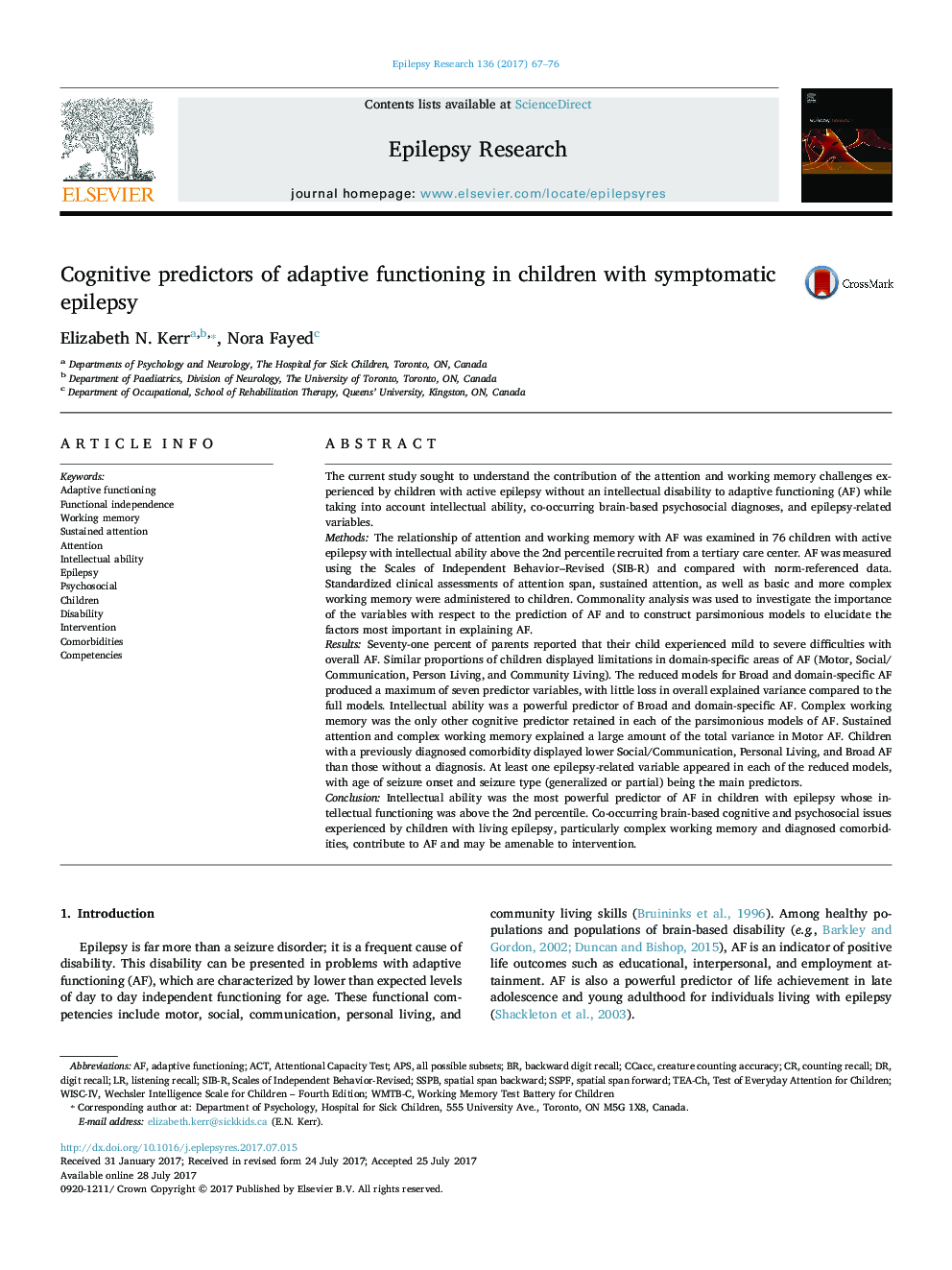| Article ID | Journal | Published Year | Pages | File Type |
|---|---|---|---|---|
| 5628702 | Epilepsy Research | 2017 | 10 Pages |
â¢Children with active epilepsy lag behind age peers in Adaptive Functioning (AF).â¢Intellectual ability is the most powerful cognitive predictor of limitations in AF.â¢Complex working memory (CWM) contributes to global and domain-specific AF.â¢CWM is potentially modifiable, making it important when trying to improve AF.â¢Predictors of AF are domain-specific and may guide skill-based intervention.
The current study sought to understand the contribution of the attention and working memory challenges experienced by children with active epilepsy without an intellectual disability to adaptive functioning (AF) while taking into account intellectual ability, co-occurring brain-based psychosocial diagnoses, and epilepsy-related variables.MethodsThe relationship of attention and working memory with AF was examined in 76 children with active epilepsy with intellectual ability above the 2nd percentile recruited from a tertiary care center. AF was measured using the Scales of Independent Behavior-Revised (SIB-R) and compared with norm-referenced data. Standardized clinical assessments of attention span, sustained attention, as well as basic and more complex working memory were administered to children. Commonality analysis was used to investigate the importance of the variables with respect to the prediction of AF and to construct parsimonious models to elucidate the factors most important in explaining AF.ResultsSeventy-one percent of parents reported that their child experienced mild to severe difficulties with overall AF. Similar proportions of children displayed limitations in domain-specific areas of AF (Motor, Social/Communication, Person Living, and Community Living). The reduced models for Broad and domain-specific AF produced a maximum of seven predictor variables, with little loss in overall explained variance compared to the full models. Intellectual ability was a powerful predictor of Broad and domain-specific AF. Complex working memory was the only other cognitive predictor retained in each of the parsimonious models of AF. Sustained attention and complex working memory explained a large amount of the total variance in Motor AF. Children with a previously diagnosed comorbidity displayed lower Social/Communication, Personal Living, and Broad AF than those without a diagnosis. At least one epilepsy-related variable appeared in each of the reduced models, with age of seizure onset and seizure type (generalized or partial) being the main predictors.ConclusionIntellectual ability was the most powerful predictor of AF in children with epilepsy whose intellectual functioning was above the 2nd percentile. Co-occurring brain-based cognitive and psychosocial issues experienced by children with living epilepsy, particularly complex working memory and diagnosed comorbidities, contribute to AF and may be amenable to intervention.
